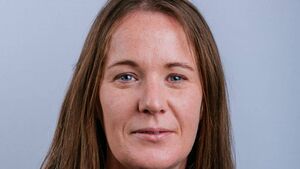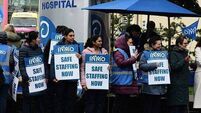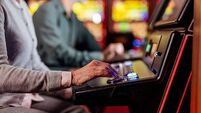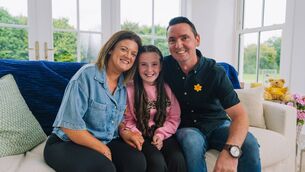Kildare doctor stands up for brain injury survivors

CEO of Acquired Brain Injury Ireland, Karen Foley
Kildare CEO of Acquired Brain Injury Ireland (ABI), Dr Karen Foley, who has worked with ABI since 2006 when she was a PhD student in UCD, has spent most of her professional life advocating for those with brain injuries in Ireland.
She said: “I quickly fell in love with the organization, was really passionate about the work, the vision and the mission of the organization”.
After completing her PhD, she stayed with ABI, moving into service management and in 2015 she moved to a different company also in the disability sector, before moving back to ABI to take on the role of CEO.
ABI Ireland is a charity dedicated to helping people recover from the impact of brain injury. Through expert clinical services and individualised rehabilitation plans, the organisation supports brain injury survivors in achieving their goals and leading independent lives.
It offers a range of services tailored to the needs of each person, including information, training, and practical assistance for those living with an acquired brain injury, as well as their families and healthcare professionals.
Dr Foley, from Naas, believes that to help people with brain injuries, there has to be enough services for people to get support from:
“For some individuals that will involve them coming to live with us for a time in our assisted living services and having access to 24-7 support, for others it will involve support going out to them in their own homes and in their own communities. Working with people and their family to really allow individuals to regain as much independence and regain as much of their life as possible after a brain injury”.
ABI is partnered with Anvers Housing through the CAS scheme, allowing survivors to access housing with much needed supports.
ABI prides itself on their research and advocacy for brain injury in Ireland, working with the government on initiatives like the neurorehabilitation strategy and ‘Wasted Lives’, which is a project focused on inappropriate placements of people in nursing homes under the age of 65.
For those experiencing the effects of brain injury: “We spend a lot of time advocating politically for change, to ensure that what's available now and what should be available”, said Dr Foley.
“In order to influence change, you really need good data and good information, so it's very important that the organization produces good information, produces good research.” Speaking about the large spectrum of effects brain injury can have on survivors, she said: “The effects of a brain injury can be physical, social, emotional, but certainly will affect things like fatigue, memory, ability to control your emotions, ability to plan your day, and all those things that we take for granted can be affected and are affected by a brain injury”.
Fundraising is integral to the charities ability to provide these vital services: “Our services are funded by the HSE, but we are always in need of additional funding so that we can provide extra services for people as and when they need it”.
Approximately 120,000 people in Ireland are living with a disability as the result of an acquired brain injury.
For this reason, ABI’s annual ‘Step Up’ fundraiser asks people to walk 120,000 steps during January to raise funds and rebuild the lives of those suffering with brain injury. For those wanting to take part this January, visit to sign up and start fundraising.





